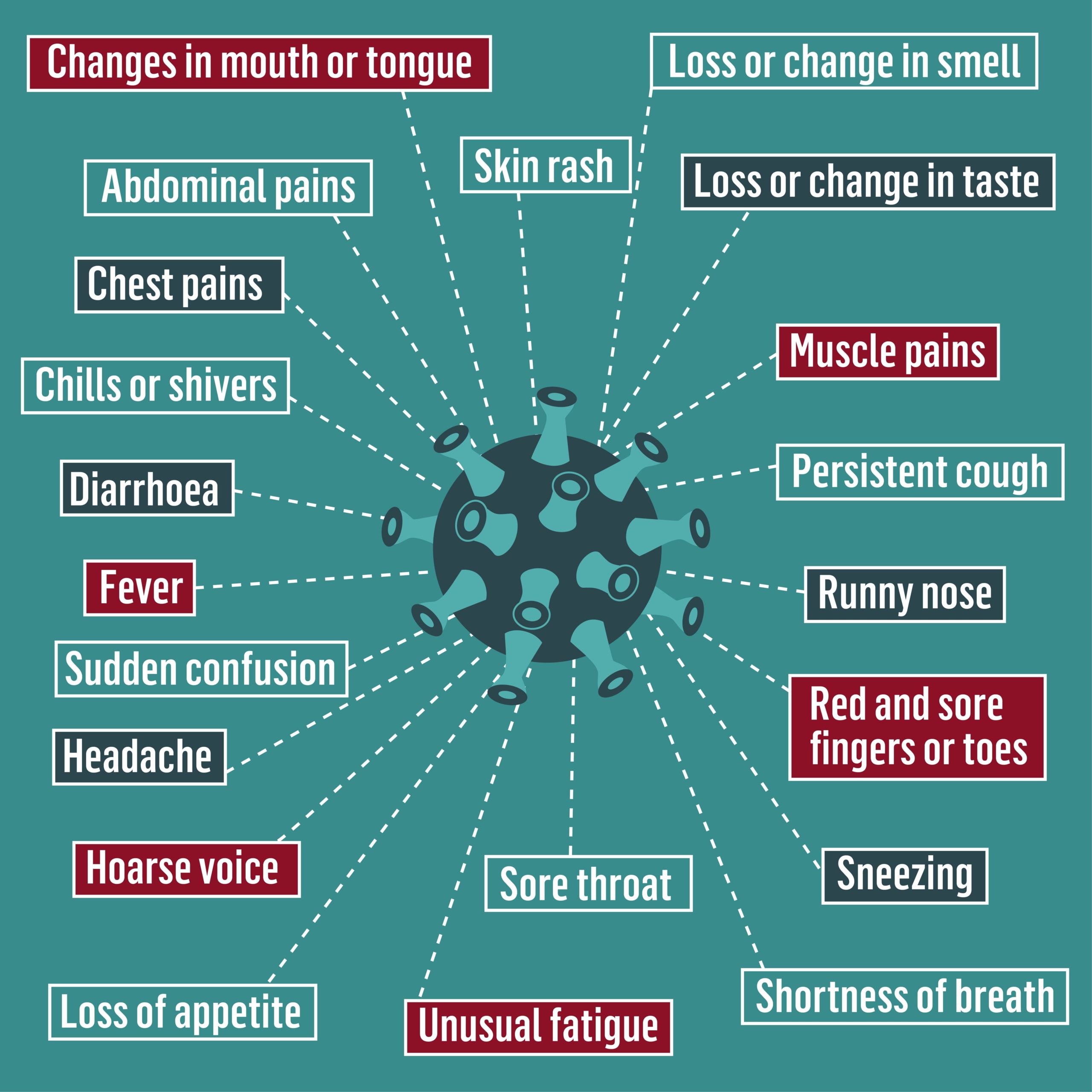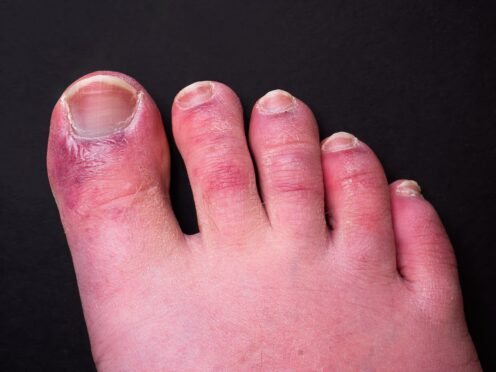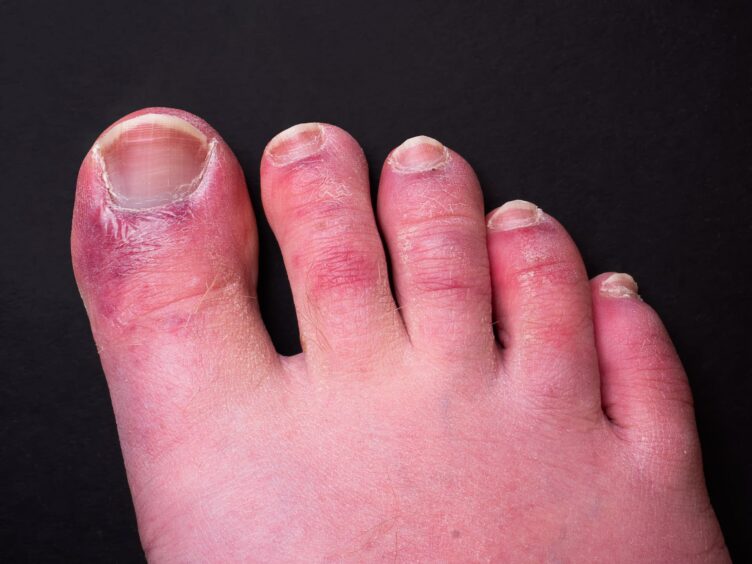A nationwide study with more than four million participants has revealed a list of unusual Covid symptoms that could signal someone has developed Covid-19.
Alongside the typical signs of the disease, such as shortness of breath and a persistent cough, a raft of less common traits have emerged.
These have been picked up by the Zoe Covid Symptom Study, which feeds into research on the pandemic at King’s College London.
‘More to Covid symptoms than cough and fever’
A spokeswoman for NHS Western Isles explained: “The vast majority of us are well aware of the widely publicised three main symptoms of Covid-19 – a high temperature, persistent cough and loss of or change in taste or sense of smell.
“However, it has become clear that there is more to Covid than cough and fever.
“And what you may not know is that there are also different common symptoms for those who contract Covid-19 after being vaccinated.”
This list includes heat rashes and the likes of so-called “Covid toes” – red marks on the feet thought to be caused by tiny clogs in blood vessels.
Unusual Covid symptoms: The full list
This full list of unusual Covid symptoms has been developed by the Zoe Covid Symptom Study, compiling daily health checks from millions of people across the UK.
Covid toes: What are they?
Affecting the fingers as well, some people with the disease have reported suffering from Covid toes.
This is where they can turn red or purple, and could result in blisters and itching.
Initially this symptom baffled scientists, but a study last year linked it to coronavirus particles entering the blood vessels.
Covid toes can affect people of all ages – and generally focuses on the feet rather than hands – and typically clears up within around a fortnight.
Doctors have suggested applying a hydrocortisone cream to help lessen the effects.
Parosmia: Leaving food tasting of sewage

Some people who’ve suffered from Covid have experienced a condition known as parosmia.
For people with this, everything they eat or drink tastes disgusting.
Some have likened it to sewage, burning rubber or even rotten flesh.
This is another Covid side-effect where the connection isn’t fully understood – but it’s believed to be connected to smell-detecting cells in the nose.
There’s no set cure, but the NHS has advised people try things like “smell training” and nasal sprays.
Brain fog and confusion
 A study earlier this year found around one-fifth of all Covid patients have been left with longer-term brain fog and confusion.
A study earlier this year found around one-fifth of all Covid patients have been left with longer-term brain fog and confusion.
And around half of respondents felt generally fatigued and weak.
These symptoms can include difficulty thinking or concentrating and general confusion.
The NHS Inform website says brain fog doesn’t mean there’s any damage to the structure of the brain.
It recommends people stay hydrated, get enough sleep, take regular exercise and eat healthily to help lessen the effects.
Tinnitus: A ringing in your ears

Research has shown a potential link between Covid and tinnitus (a ringing in your ears) or more serious hearing loss.
A recent study found around 15% of people who had coronavirus also had tinnitus as a symptom, which can be distracting at best, and life-changing at worst.
People who experience sudden hearing loss are advised to contact NHS 24 by calling 111.


